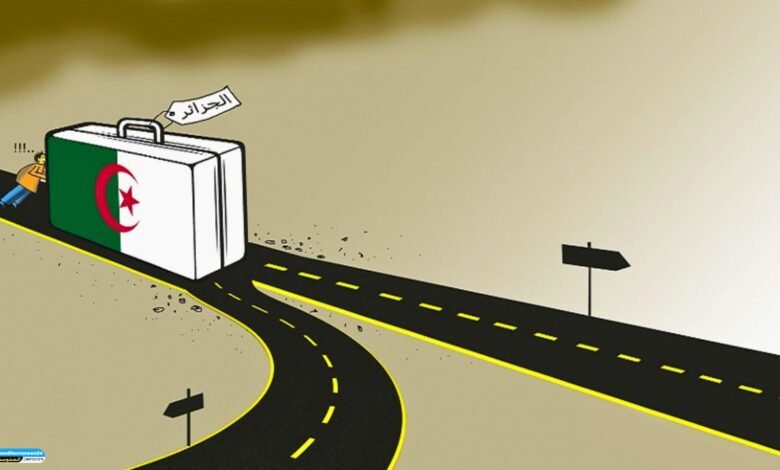Algeria at a Crossroads: The Rent Crisis and the Government’s Failure to Address Economic and Social Challenges

Algeria’s economy is at a critical juncture that requires radical changes in its policies, but the current government remains stuck in a traditional approach that hinders progress and keeps Algeria trapped in the grip of “rent.” The prolonged reliance on oil and gas revenues has created a rentier economy that does not depend on production or diversification but rather on widespread government subsidies that are often mismanaged. This system, which played a role in ensuring internal stability for decades, has now become a heavy burden on the country, especially with the decline in oil prices and the growing need for a fundamental reform of its economic policy. Despite the great opportunities available in sectors like renewable energy and non-oil exports, the government has made no significant efforts to steer the economy toward diversification. On the contrary, there seems to be a deliberate disregard for projects that could drive this transformation.
While the government boasts about the increase in non-oil exports, figures show that this increase does not meet the expectations of the Algerian citizen, who suffers from high unemployment rates, particularly among young people, and rising prices that directly affect his purchasing power. The government continues to address youth issues with superficial solutions, such as improving working conditions in the public sector or reducing working hours, but these solutions are far from addressing the root causes of chronic unemployment. Moreover, regional disparities remain one of the most significant problems ignored by the authorities, as development is concentrated in certain areas at the expense of others, exacerbating inequalities and provoking anger among many citizens.
The government in Algeria also seems to live in denial regarding the deterioration of relations with Western countries, especially France, which reflects a failure to establish foreign partnerships based on mutual respect and constructive dialogue. Rather than benefiting from economic and diplomatic relations with these countries to secure investments and modern technologies, these relations are becoming increasingly tense due to poorly thought-out foreign policies and questionable ties with countries like Russia and China, which negatively impacts Algeria’s economic and diplomatic situation.
The security crisis in the region, particularly in Mali, Libya, and Niger, is a major challenge, but the government has not shown a great ability to address these threats proactively. Instead, it has opted to delay making decisive decisions, which places Algeria in a difficult situation if regional security crises escalate. The increasing security threats require quick action from the government, but it remains stuck in a cycle of temporary measures rather than putting in place a comprehensive strategy to face these challenges.
On the other hand, the Algerian regime responds to public demands with repressive measures instead of structural reforms that meet the citizens’ aspirations. Political freedoms remain restricted, and many dissenting voices are met with repression and imprisonment. When citizens protest to claim their basic rights, the government responds with force and repression rather than sitting down at the negotiating table to find solutions that can help pull the country out of the recurring crises.
Algeria today needs new leadership capable of recognizing opportunities and managing them effectively. Deep changes in economic and social policies should begin with the elimination of ineffective subsidy policies, and a shift toward policies that promote sustainable growth, while establishing foreign relations based on Algeria’s national interests, without compromising the interests of the Algerian people. Otherwise, the country will remain trapped in a cycle of political and economic crises that threaten its future.





